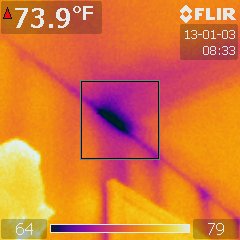Multi Unit Inspection In The Chicago Area
- Apartment
- Condominium Association
- Hotel/Motel
- Multi-Purpose / Multi Unit Inspection
- Free Standing Flat
Multi Unit Inspection Points
Building Structure, Building Envelop, Interior Units, Common Areas, Foundation, Roof and Drainage System, Exterior Walls, Doors & Windows, Attic, Insulation, Sidewalks & Driveways, Plumbing & Fixtures, Heating & Cooling Systems, Water Heating, Electrical Fixtures, Switches & Receptacles, Basement & Crawl Spaces, Electrical Service Panel and Load Centers, Floor Structures, Walls and Ceilings, Exterior Grading, Grounds and much more!
The professional home inspection cost is quite small when compared to the cost of potential issues we find!

Potential for leakage
There is no doubt about the fact that weather swings can cause damage to foundations and hard surfaces, like driveways and walks.
Furthermore, the wet conditions in the soil beside a foundation can freeze and expand, leading to cracks to develop, often resulting in leaks. The identical freeze and expansion routine can cause driveway or walkway damage. Right kind of drainage is pivotal to minimizing this, as well as intact waterproofing around the buildings foundation.
Hire us for your building inspection!
Value added services
Since we use infrared thermal imaging with our home buyer inspections, you now have more peace of mind with your home purchase.
What is a Building Inspection?
A building inspection, or Multi Unit Inspection is performed by a person who is employed by either a city, township or county and is usually certified in one or more disciplines, either as a residential or commercial building inspector, a plumbing, electrical or mechanical inspector or other specialty to inspect structures at different stages of completion. Most building inspectors employed by governments are certified by the State or the International Code Council (ICC). These inspections are done to assure compliance with whatever building, plumbing, electrical, mechanical or specialty codes, such as swimming pool codes, that are being enforced by the jurisdiction in which they work. There are many categories and levels of ICC certified inspectors.
The term building inspector is sometimes used for persons who inspect houses to assure compliance with the plans and to check workmanship as well as code compliance, or a home inspector consulted in conjunction with a house sale. These building inspectors are private contractors and are not connected with any governmental department or agency.
The Home Inspectors do not work for the city or villages and do not perform building inspections or home inspections by the code.
Consulting engineers often carry out structural building inspections for strata properties where there are structural elements of the building found to be unsafe. Whether it is the balconies, balustrades or cracking due to settlement in the walls, consulting engineers provide building inspections of the property and make the appropriate assessment and provide dilapidation reports followed by proposals for remedial action.
Building inspectors are often contacted by strata managers or body corporate with storm water design issues, structural design proposals or civil design modifications. In addition, individuals are often required by councils to carry out dilapidation reports and building inspections of adjoining properties and associated council properties before and after construction, to establish that no damage has occurred due to the work carried out.
